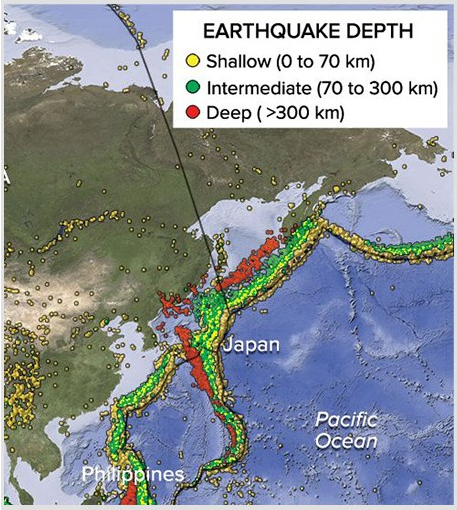On this map of earthquakes near Japan, why do shallow earthquakes (yellow dots) occur to the east and deeper earthquakes (red dots) occur to the west?

A) The continental crust is thicker to the east.
B) The crust is hotter near Japan, closer to the volcanoes.
C) There is a continental collision to the east.
D) The subduction zone dips to the west.
D) The subduction zone dips to the west.
You might also like to view...
Why does air expand as it moves upward through the atmosphere?
What will be an ideal response?
In which decade was the first commercially important synthetic polyamide synthesized?
A) 1920s B) 1930s C) 1940s D) 1950s
The typical trend in a rising plume of subduction-zone magma is to increase the ________.
A. viscosity B. explosive potential of the magma by holding in the gases more tightly C. percentage of SiO2 D. All of these choices are correct.
The local high school in your hometown has a project where students are collecting water samples in collaboration with the local university. This project is an example of a(n)
A. Environmental literacy project B. Attempt to recruit students to the university C. Attempt to get high school students involved in environmental careers D. Citizen science project E. Early careers project